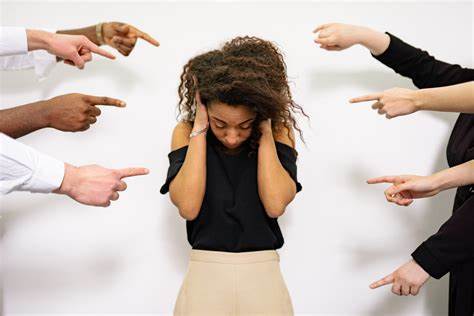Living with Anxiety: Essential Tips for Managing Social Anxiety, Panic Attacks, and Phobias

Anxiety comes in many forms, and it can be tough to handle. We'll dive into social anxiety, panic attacks, and phobias, offering practical coping strategies and treatment options to help you feel more in control.
Understanding Different Types of Anxiety
Social Anxiety
Social anxiety is the fear of social situations where you may be judged or scrutinized by others. Common symptoms include:
- Intense Fear: Worrying excessively about social interactions.
- Avoidance: Avoiding social situations or enduring them with intense distress.
- Physical Symptoms: Sweating, trembling, nausea, or difficulty speaking in social settings.
Panic Attacks
Panic attacks are sudden episodes of intense fear that trigger severe physical reactions. Symptoms include:
- Rapid Heartbeat: Feeling like your heart is pounding or racing.
- Shortness of Breath: Difficulty breathing or a feeling of being smothered.
- Dizziness: Feeling lightheaded or faint.
- Fear of Losing Control: A sense of impending doom or fear of dying.
Phobias
Phobias are intense, irrational fears of specific objects or situations. Common types include:
- Specific Phobias: Fear of specific objects like spiders, heights, or flying.
- Agoraphobia: Fear of situations where escape might be difficult, often leading to avoidance of open or crowded places.
- Social Phobia: Overlapping with social anxiety, it involves fear of social situations.
Coping Strategies for Anxiety
Social Anxiety
Practice Gradual Exposure
- Start Small: Begin with less intimidating social situations and gradually work up to more challenging ones.
- Set Realistic Goals: Aim for achievable social interactions to build confidence over time.
- Reward Yourself: Celebrate small victories to reinforce positive experiences.
Improve Social Skills
- Role-Playing: Practice social interactions with a friend or therapist.
- Active Listening: Focus on listening and responding rather than worrying about how you're being perceived.
- Join Groups: Engage in group activities or clubs that interest you to practice socializing in a supportive environment.
Panic Attacks
Breathing Techniques
- Deep Breathing: Inhale slowly through your nose, hold for a few seconds, and exhale slowly through your mouth.
- Grounding Exercises: Focus on your surroundings to bring yourself back to the present moment.
Cognitive Techniques
- Positive Self-Talk: Remind yourself that panic attacks are temporary and not life-threatening.
- Challenge Negative Thoughts: Identify and counter irrational thoughts that fuel panic.
Lifestyle Changes
- Regular Exercise: Physical activity can reduce anxiety and improve overall well-being.
- Limit Caffeine and Alcohol: These can trigger or worsen panic attacks.
Phobias
Exposure Therapy
- Systematic Desensitization: Gradually expose yourself to the feared object or situation in a controlled way.
- Hierarchy of Fears: Create a list of feared situations, starting with the least scary and gradually working up.
Relaxation Techniques
- Progressive Muscle Relaxation: Tense and then relax different muscle groups to reduce physical tension.
- Visualization: Imagine yourself handling the feared situation calmly and successfully.
Professional Help
- Therapy: Cognitive-behavioral therapy (CBT) is highly effective for treating phobias.
- Medications: In some cases, medications may be prescribed to help manage severe anxiety symptoms.
Treatment Options for Anxiety
Cognitive-Behavioral Therapy (CBT)
CBT is a structured, goal-oriented therapy that helps you identify and change negative thought patterns and behaviors. It is effective for all types of anxiety disorders.
Medications
Medications can be used to manage anxiety symptoms, including:
- Selective Serotonin Reuptake Inhibitors (SSRIs): Commonly prescribed for anxiety disorders.
- Benzodiazepines: Used for short-term relief of severe anxiety symptoms.
- Beta-Blockers: Can help manage physical symptoms of anxiety, such as rapid heartbeat.
Mindfulness and Relaxation Techniques
Practicing mindfulness and relaxation can help reduce anxiety:
- Mindfulness Meditation: Focus on the present moment to reduce anxiety and improve emotional regulation.
- Yoga and Tai Chi: These practices combine physical movement with mindfulness and deep breathing.
Conclusion
Living with anxiety can be challenging, but understanding the different types and implementing practical coping strategies can help you feel more in control. Whether you're dealing with social anxiety, panic attacks, or phobias, there are effective techniques and treatments available to support you. Remember, seeking professional help is a crucial step in managing anxiety and improving your quality of life.

